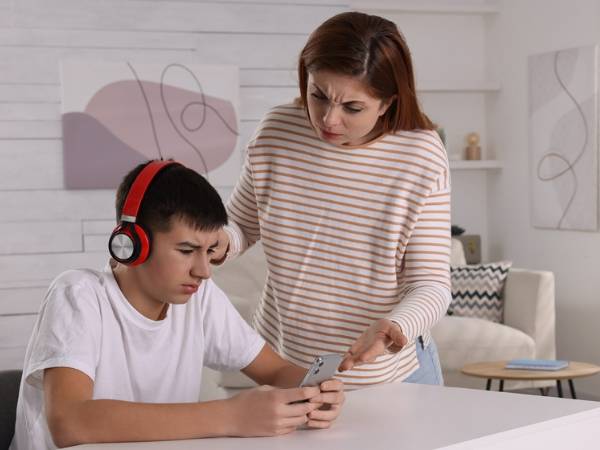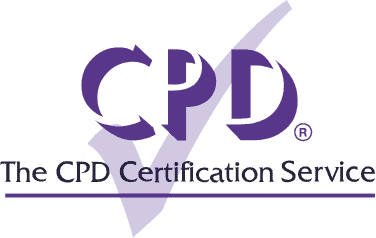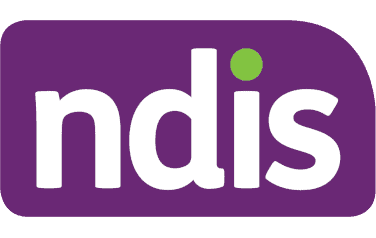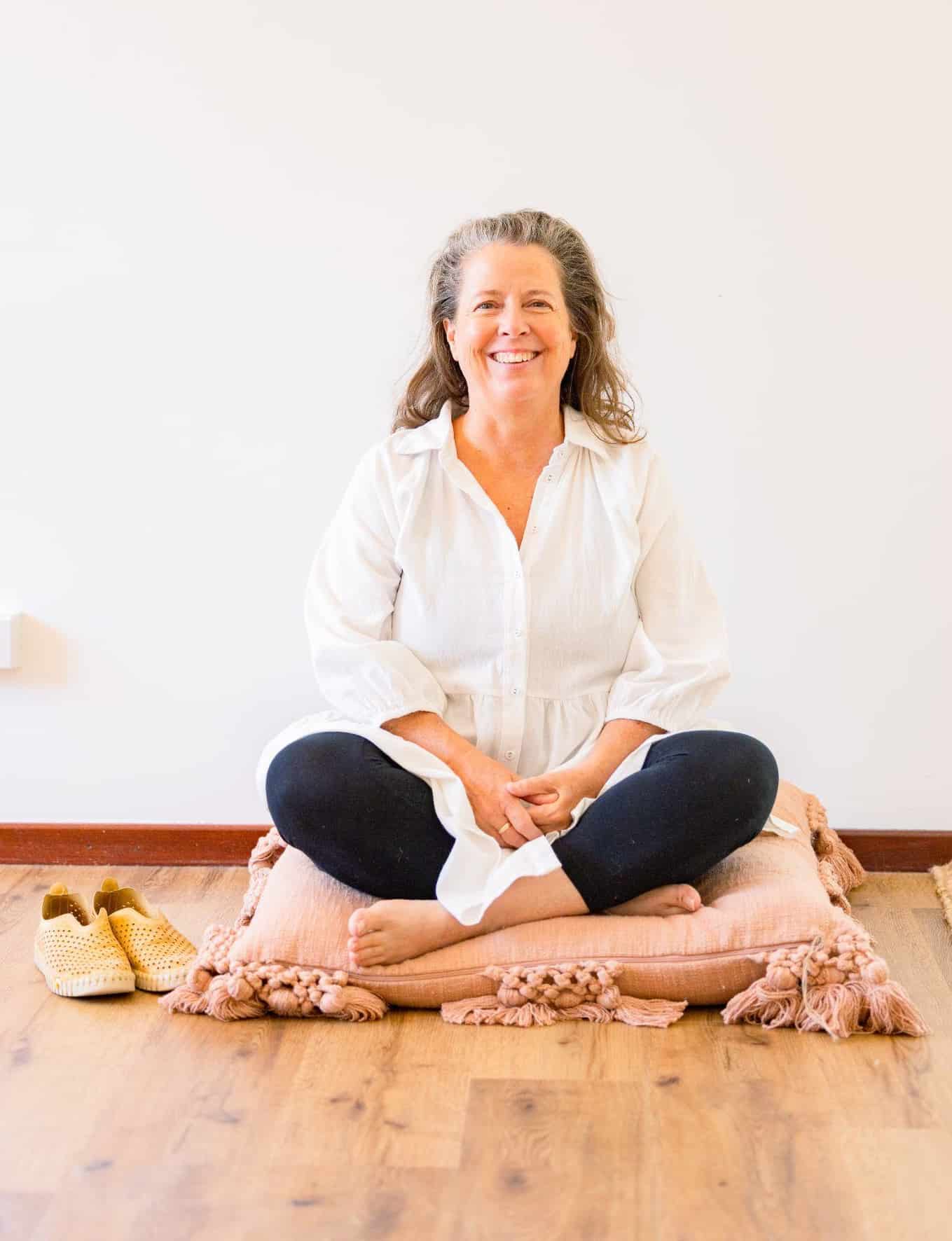Enhance your clinical practice or your home life with A.R.T. IN DEPTH
Deep-dive into the science and practical application of Anxiety Reframe Technique.

As an Allied Health Professional…
Do you want better therapeutic tools to support your autistic clients?
Are you frustrated by the limitations of other techniques you’ve been taught?
Are you looking to expand your means of working with clients on the autism spectrum?
Are you looking for ways to expand your means of working with and supporting your patients on the autism spectrum? Perhaps you’re frustrated by some of the limitations of other techniques?
As a parent…
Do you want to help your child/teen feel happier? Grow into the best version of themselves? Become more connected to others around them?
But are they reactive or non-responsive and locked-out more often than not? Have you found limited success—or experienced a lot of resistance and even regression—with other therapies? Do you spend precious time and money on programs or therapies that don’t make a difference or where you hit a brick wall with? Are running on a hamster wheel of specialist appointments? Do you feel at your wit’s end and worry about the future if nothing changes?

Whichever category you fall into, parent or health professional, does it feel as if nothing you try works that well? As if nothing is really changing?
The problem is not your child, or your client. The problem is that most therapies are not designed for the neurodivergent community.

How does A.R.T. work?
A.R.T. is different—it is designed specifically for the neurodivergent community. It is a new, revolutionary approach to autism therapy that brings together somatic practices, Polyvagal Theory and brain plasticity in a unique way.
Ultimately, A.R.T. helps individuals move out of a shut-down, immobilised inertia state—in an incredibly accessible way. Because, as Albert Einstein said “The definition of genius is taking the complex and making it simple!”
- A.R.T. doesn’t need them to articulate what’s happening or what they’re feeling.
- It doesn’t need them to fix everything before they can feel good.
- The exercises are simple to apply so they don’t overwhelm.
A.R.T. is profound in its simplicity, and in how it can generate states of wellbeing, greater calm and robustness in people of all ages on the autism spectrum, by easing autonomic stress. This is neurodivergent practice at its finest, most compassionate and most nuanced.
For therapists, and parents alike, A.R.T. provides a supplementary or alternative approach that can be integrated into your practice or your home to make a profound difference to your child or clients’ wellbeing.
The changes seen in A.R.T. defy expectations, such as:
Children on the spectrum who have been reactive and shut-down are connecting with their surroundings and family members in ways they never have before.
Adult autistics with lifelong trauma are feeling joy like when they were young.
Best of all, instead of simply calming the system with exercises or co-regulation, A.R.T. seems to be significantly impacting vagal tone—leading to long-term shifts in behaviour.
Why is A.R.T. so effective for the neurodivergent population?
We’re talking sustained life changes like:
- Being better able to self-regulate.
- Becoming less triggered or reactive.
- Experiencing more, and deeper, connection with others—including parents and family.
- Building meaningful relations.
- Feeling more comfortable and at peace within themselves.
- Becoming more expressive and engaged in their daily life.
- Being able to go to school successfully.
- Being able to make friends more easily.
- Being better able to keep down a job.
What past students are saying about A.R.T:
Hear directly from parents and adults with autism who have applied this therapeutic approach.
What health professionals have said about A.R.T.:
Learn A.R.T. IN DEPTH
Taught by founder Holly Bridges
Gain a robust working understanding of A.R.T. so you can begin to implement it with clients, or in your daily life as a parent of a neurodivergent child.
Over the course of this program you will
- Learn to incorporate A.R.T theory and practice into your workspace—or your home.
- Gain an understanding of the physical and emotional subtleties of working from an A.R.T. perspective.
- As a clinician, learn how to work with a variety of clients, and how to maintain an open, individual and neurodivergent focus.
- As a parent, be empowered to work with your child at their own pace.

The details:
Investment = $4,990.00 $4,490.00 AUD Founder's Launch Price
Or $500* for the first month, then $1,350/month for 3 months


We are now offering itemised invoices for NDIS. Please email us for more information.
Brought to you by License To Think
Next A.R.T. in Depth Classes starting late 2024
What’s included in A.R.T. IN DEPTH?
Self-Study Educational Content
In this course, we are investigating a wide selection of contemporary materials, videos, articles, poems and academic papers, all integrated and illuminated by PowerPoint tutorials and audio lessons from Holly Bridges.
Each module can take 10-30 hours to engage with, depending on your reading speed and the content within the module.
Optional Live 90-minute Calls Over Zoom
Holly will also be available for additional live calls where students can meet with Holly, ask questions and develop their thinking.
These live sessions are not compulsory but are especially useful for those who wish to move on to A.R.T. Certificate 2.
What the course covers, week-by-week
MODULE 1: Historical Context of Autism and Disability
- Week 1 Historical Context of Autism and Disability
- Week 2 The Neurodiversity Rights Movement
- Week 3 Deficit Model vs Social Model
- Week 4 Disability and Social Justice
- Week 5 Shifting Paradigms
- Week 6 A Healing Setting
MODULE 2: The Polyvagal Landscape
Here we take a deep dive into the physiology of the vagus nerve and how it engages with the body as a whole. We learn how our bodies are reactive to our environment at a systems level and we develop a wider appreciation of the dorsal vagus and all it can afford us in understanding the neurodivergent mind. From here we look at the way in which living 'outside the body' can enhance a global empathy and sentience and what this means from a therapeutic perspective.
- Week 1 The Polyvagal Theory, Physiology
- Week 2 Human Circuitry
- Week 3 Neuroception and Interoception
- Week 4 Anxiety and Inertia
- Week 5 Realms of the Dorsal Vagas
- Week 6 The Boundless Heart
MODULE 3: Presume Competence
In this module we explore the beauty of alternate ways of being and seeing and how we seek to enhance and appreciate neurodiversity, not stifle. We learn how to apply the ball and hand points from a place of subtlety and grace that do not overwhelm the system and how we can engender relationship with the body system and not impose order. We look at how to work with people without requiring foundational skills of interoception and accessing emotional and feeling states - and just what this affords the client.
- Week 1 Presume Competence
- Week 2 Alternate Physical Realities
- Week 3 Future Humans
- Week 4 Redefining Neurodiverse Research and Practice
- Week 5 A.R.T. Exercises (Ball and Hand Points)
- Week 6 Case Study - Unpacking the Who/What How of A.R.T.
MODULE 4: Neuroplasticity and the Path of Change
Here we open to the physical reality of neuroplasticity and how we can begin to play in this space with a keen eye on our learnt bias. We explore ways of thinking about and working with the body that are expansive and allow us to see distinctions in what A.R.T. is and what it can be. We continue to develop critical thinking in regards to autism, disability and somatics, so that we continue to make a clean space to work within.
- Week 1 Our Ever-Changing Brains
- Week 2 Movement, Brain Plasticity and Learning
- Week 3 Science of Neuroplasticity
- Week 4 Brain Structures and Autism
- Week 5 Neuropathy and Neurosensory Disturbances
- Week 6 Movement Therapy and A.R.T.
MODULE 5: Fields of Potential
This exciting module allows us to see past the behavioural based paradigms of science and neuroscience and to see where healing can go when we play in between the spaces. We look at chaos theory, working without a net, being safe in not knowing and how when we can get good at this space, we are of great benefit to the people we choose to serve.
- Week 1 Brain Waves
- Week 2 Risks and Rewards of Playing With Brains
- Week 3 The Perils of Neuroscience
- Week 4 Epigenetics and Quantum Mechanics
- Week 5 Rehabilitation after Brain Damage
- Week 6 Case Study - Unpacking the Who/What How of A.R.T.
MODULE 6: Perception and Somatosensation Science
With this module we analyse what we are doing in A.R.T. with body sensations and how the whole is the sum of its parts. We look at the intricate ways the body perceives information and how this allows us to move, think, see and feel. We then transpose this truth, this ideation, to the A.R.T. exercises and start to understand them at a more interstitial level. This gives us greater grounding in what we are doing and what we are asking of the people who come to see us.
- Week 1 Perception and Somatosensation
- Week 2 Architecture of Connective Tissue
- Week 3 Adaptive Reactions of the Autonomic Nervous System
- Week 4 Inner Workings of the Legs and Feet
- Week 5 Wonders of The Fascia
- Week 6 Working with Interstitial Patterns
MODULE 7: Working With the Enteric Nervous System and Dan Tien
Here we explore A.R.T. as an internal martial art and we identify ways in which A.R.T. is distinctly different from other modalities which on the surface seem bottom up, but still require foundational skills that people often do not have. We get clearer on how to co-regulate with clients with a variety of needs and how to hold back from employing old ways of manipulating and manoeuvring people into what we think they should be. Instead we learn to listen and engage with what is and what could be.
- Week 1 Holy Hara
- Week 2 East vs Western Thinking
- Week 3 Enteric Nervous System
- Week 4 Evolution of the Nervous system
- Week 5 A.R.T. - Just What’s Possible
- Week 6 Examining A.R.T. Exercises vs Other Modalities
Why Holly created A.R.T. IN DEPTH
Holly Bridges is an undiagnosed autistic, with a psychology degree, who worked in autism services and saw firsthand what she perceived was lacking in the current therapies. As a result, she is on a mission to transform the sector—and she was awarded the Excellence for Innovation by the NDS for her work in 2018.
Holly provides an alternative to less accessible “bottom-up” somatic practices and traditional “top-down” autism therapies and illuminates a new way of making progress—with a great depth of sensitivity, compassion and understanding.
As awareness of A.R.T. (Anxiety Reframe Technique) has grown, Holly has had countless inquiries from parents and therapists who wanted to learn more.
A.R.T. IN DEPTH was a result of those inquiries.
This program encourages critical thinking—and safely teaches clinicians and parents to understand and begin to apply A.R.T. as a supplement to their current approach towards supporting clients/children with autism. Or, in its own right, as a valuable and life changing therapy.

A.R.T. In Depth Is Perfect For You If:
- You’re a clinician and you want to improve or supplement your approach to treating autism. Your other approaches aren’t getting the traction you need, especially with more challenging/treatment-resistant clients.
- If you want to find better ways. Instead of symptom management, prompting and supporting deficits, together we can help to people to change the way their system deals with stress and allow the individual greater capacity in their executive, physical and social systems
- You've trained in other somatic practices and want to upgrade your finesse in engaging more subtly with your clients
- You’re a parent and you want to be able to better apply this approach with your children—whatever their age or wherever they sit on the spectrum—particularly if you’ve not got access to an A.R.T. practitioner.
- You are an educator or caregiver who regularly works with people on the spectrum, and would like more tools, more knowledge and a fresh perspective to help you do so successfully, compassionately and effectively.
Please note: If you would like to become a Certified/Approved A.R.T. Therapist you will need to complete our three-year Practitioner Training. A.R.T. In Depth is the first year of that training—it can be taken as a stand-alone education program, or alternatively, you can choose to apply for the remaining two years of our Practitioner Training upon completion of A.R.T. In Depth to become an approved A.R.T. provider. If you’re not sure which course is right for you, contact our team here. We are here to help, and delighted to share this revolutionary approach to autism therapy with health professionals.
30 day money back guarantee
After 30 days, if you decide the course is not for you, then you can request a refund of any amount you have paid to that date.
Ready to help your clients or child transform?
Live education and Q&A sessions with founder Holly Bridges
Case Studies of A.R.T. in practice
500 CPD Credits

What happy clients say:
What past students have said about A.R.T.:
FAQ
What’s the difference between A.R.T. and other somatic practices?
A.R.T. is not asking people to tell us how they feel or use interoception to follow trains of feeling in the body. We do not override the individual and impose a process. It is a therapy based in co-design and the client is part of the decision making process at all times, yet the therapist is the guide.
The therapist does not ‘know best’, we are all learning to listen to the system and see what it needs on any given day. We are building relationships with the body, not clearing it, dominating it, making it pliable so it will do what we want. With A.R.T., we are learning to play with the sentience of the body and people leave with the skills and knowledge to be able to engage this relationship for themselves.
Working with an appreciation of interoceptive competence, neurodivergence and neuroplasticity makes this a game changer. Teaching people how to listen to their body in a way that is applicable to them, learning how to recognise and respond to when the body has had enough; when to move forward, when to push through, are all aspects of the work that are designed to promote inner agency.
With A.R.T., we are teaching the body how to move naturally into a more neutral state and teaching the individual to have mastery over this process.
Do I have to attend every single live session?
You do not. The live sessions are not compulsory. However, there will be recordings available to re-watch if you would like! If you wish to proceed to the Therapist Training, it is advised that you make time to join the live sessions.
Do I need to complete the 6 week course?
It is not compulsory but it is advised give you insight into the work and let you make an informed decision about whether you want to progress to the more advanced level.
Will A.R.T. In-Depth equip me to become a Certified A.R.T. Therapist?
A.R.T. In-Depth is a stand alone course. It is also a prerequisite for moving forward to the Therapist Training.
The Therapist training is a three year course, and A.R.T. In Depth is the first year of that, acting as Certificate 1. For more information on the full therapist training, contact us here, or see additional information below.
- Certificate 2 (Starting 2025)
Practical Application of A.R.T.
Dive deep into the psycho-social elements of A.R.T. Learn the full range of techniques and learn to apply them with a range of clients in real-world settings. Online training, practice sessions with peers and select clients. Online group sessions.
Please note, if you would like to start A.R.T. Certificate 2 that is held live and is starting in 2025, so we advise doing A.R.T. In Depth sooner rather than later in order to be ready for the Certificate 2 start date! You will need to apply directly to move into the Certificate 2 course.
- Certificate 3 (Starting 2026)
Supervision
Individual supervision of your A.R.T. client base. Group supervision sessions. - Advanced Practitioner Training (one year post Graduation)
Learning the subtleties and dimensions of running- Mini Intensives
- Full Intensives
When is the course content released?
The course starts in March. Modules are broken up into six week blocks, as you complete each week, you automatically receive the next week. At the end of the module we have a live call. After this we open the next module and start again.
There are optional 90 min calls. What time do they happen?
At the end of the module we have a live call. Live calls start at 5pm AWST. ( Perth, Western Australia). You will receive the dates in your welcome email. They will be recorded.




